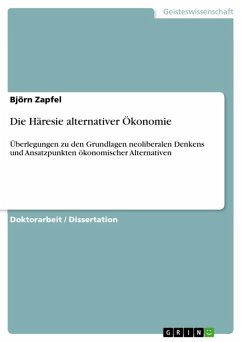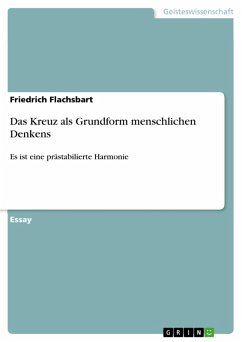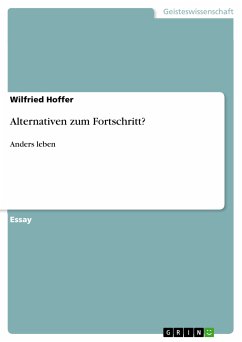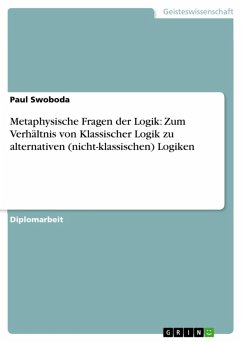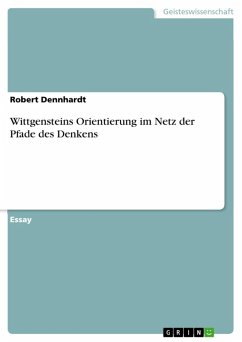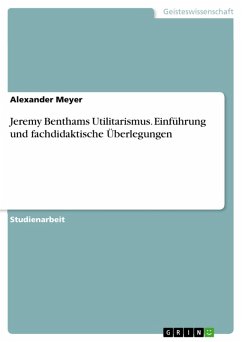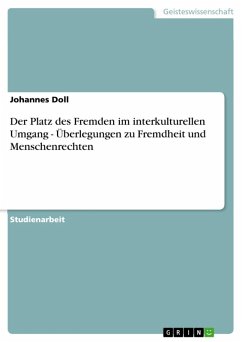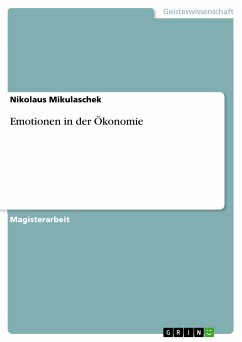Doktorarbeit / Dissertation aus dem Jahr 2002 im Fachbereich Philosophie - Praktische (Ethik, Ästhetik, Kultur, Natur, Recht, ...), Note: 1, Wirtschaftsuniversität Wien, Sprache: Deutsch, Abstract: Im Rahmen eines sozial-kontextuellen Verständnisses der ökonomischen Wissenschaft geht es um eine kritische Untersuchung des gesellschaftlich-ökonomischen Status quo ("Neoliberalismus"), sowie darum zu hinterfragen, worin sein Beharrungsvermögen trotz vieler mit ihm in Verbindung zu bringender Kritikpunkte bzw. Problembereiche begründet liegt und welche Alternativen mit welchen Effekten unter Beachtung dieser Gesichtspunkte denkbar sind. Die historische Ausformung des neoliberalen Modells/Systems wird über die Darlegung der Auffassungen des Ordoliberalismus, von Hayeks und des Monetarismus nachvollzogen. Das gegenwärtige neoliberale "Paradigma" wird kritisch untersucht. Dazu werden Begründungen für neoliberale Gesellschafts- und Wirtschaftspolitik dekonstruktiv hinterfragt und ihre Implikationen analysiert. Das Beharrungsvermögen des Systems basiert, so die These, darauf, dass Neoliberalismus eine neuzeitliche Weltsicht repräsentiert, die eigendynamische Entwicklungen entfaltet(e) und dabei eng mit "wissenschaftlich sublimierten" Glaubensaspekten verbunden ist. Insofern manifestiert der Status quo die Systemwerdung eines "Modells Neuzeit". Als Voraussetzung für die Alternativensuche gilt es, sich diesen metaphysischen Aspekten bewusst zu werden. Ansatzpunkte alternativer Ökonomie als Chance der "Rückkehr zur Geschichte" - analytisch in (markt)systemimmanente bzw. -transzendente Alternativen gefasst - werden untersucht. Dies wird u.a. durch die Heranziehung je eines konkreten Beispiels (Integrierte Produktpolitik; Selbstverwaltete Betriebe) bewerkstelligt. -°-°-°-°- Based on a socio-contextual understanding of economic science, the socio-economic status quo ("neoliberalism") and reasons for its dominance despite numerous, obvious problem areas and related criticism are analyzed, as well as potential alternatives discussed. The historical evolution of the neoliberal model/system is reconstructed referring to the points of views of Ordoliberalism, von Hayek and Monetarism. Subsequently, the present neoliberal "paradigm" is critically analyzed. To this end, arguments for neoliberal social and economic policy are scrutinized in a deconstructive way and their implications are discussed. It is the thesis that the persistence of the current system is based on the fact that neoliberalism represents a modern view of the world with self-dynamic effects, closely associated with "scientifically sublimated" aspects of faith. The status quo is a manifestation of the "model of modern times", which became systemic reality. Prior to a search for alternatives, awareness of these metaphysical aspects has to develop. Possible approaches to alternative economy, analytically classified into alternatives immanent to the (market) system and such transcendent to it, are examined as a chance for a "return to history". One example each is presented (Integrated Product Policy and autonomous enterprises).
Dieser Download kann aus rechtlichen Gründen nur mit Rechnungsadresse in A, B, BG, CY, CZ, D, DK, EW, E, FIN, F, GR, HR, H, IRL, I, LT, L, LR, M, NL, PL, P, R, S, SLO, SK ausgeliefert werden.

